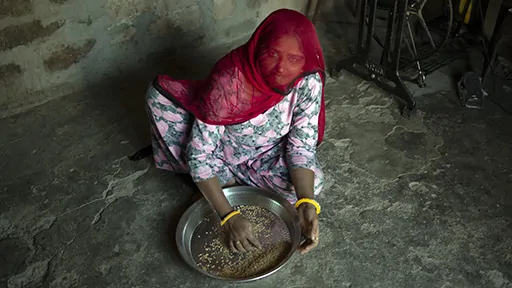Opinion Editorial Archive January, 2020: Partitions

Every society has minority groups. It's a simple matter of statistics. How we identify, label and partition them is another, more complex matter. Ethnicity and religion are among the most salient characteristics we use, and, often, these are correlated. Yet these characteristics are not constant. If we go back far enough in history, we find lost civilizations and conquered peoples who subsequently died out or were assimilated. Nor did any of the world's major religions exist in the distant past.
In most societies, minorities experience discrimination. The bases of such discrimination are too numerous to list. In addition to ethnicity and religion, they can include gender, age, social/economic status and language spoken.
Similarly, while citizenship is often correlated with ethnicity and/or religion, it too is not constant. Today, nobody is a citizen of Bougainville or of Scotland. Yet, following popular votes last month, that could change: Either could become the world's next new country.
Bougainville is a small island chain in Oceania. In terms of sovereignty, it is currently part of Papua New Guinea. In terms of history, it tells a similar story to many parts of the world. Colonially, it was part of Germany and then Australia. Last month, its inhabitants voted almost unanimously for independence. The referendum was over thirty years in the making since a separatist civil war broke out in 1988. The main driving force behind the separatist movement was racial discrimination. Bougainville is considerably diverse for its size in terms of religion, ethnicity and language, but most residents are perceived to have slightly darker skin compared to the rest of the population of Papua New Guinea.
We could examine just about any country in the world and find parallels with the Bougainville story. One of the best examples would be India. That country was, of course, already partitioned along religious lines in 1947. There, last month, the government passed a new law, the Citizenship Amendment Act, which attempts to further partition one minority group — illegal immigrants — along religious lines. Under the new law, illegal immigrants can apply for Indian citizenship if they were born in Afghanistan, Bangladesh or Pakistan and if they practice any from a list of certain religions. Islam is not on the list. Nor is Bishnoi.
I visited India last winter. I was in Jodhpur, Rajasthan, and I took the opportunity to visit a small area with a concentration of Bishnoi communities. The tour also included a stop in a majority Muslim community, Kakani village, where I took this month's photo. While India has a long history of religious-based conflict, I perceived none in this area.
Islam is a major world religion while Bishnoi is a sect of around half a million people in India. Yet, it is anthropologically uninformative to partition a wide spectrum of beliefs and customs this simply. Islam is an Abrahamic religion and, therefore, has commonalities with Christianity and Judaism, while Bishnoi is heavily influenced by Hinduism.
Most indigenous people in Bangladesh are typically reported to have been "converted" to one or another major religion, but the reality is that such "conversion" more often than not leads to a new, hybrid religion that incorporates practices from the source (Animism in this case). Similarly, it is becoming common among major religions for practitioners to assemble à la carte beliefs wherein some traditional doctrines are rejected.
The Citizenship Amendment Act received broad media coverage last month. Yet, I could find little that attempted to report the complete picture. Journalists, instead, preferred to report the new law as excluding only Islam instead of the thousands of religions it actually excludes. The Indian government would have anticipated the protests it is receiving from its Muslims, but probably not from its non-Muslim population. It is having to take drastic measures in attempting to quell those protests. Its (secular) constitution — even its democracy — is at risk.
The media is partly culpable in this. We should perhaps partition societies with a new, very small minority group: the media that reports accurately.
If you enjoyed reading this month's opinion editorial, please consider supporting independent, advertising-free journalism by buying us a coffee to help us cover the cost of hosting our web site. Please click on the link or scan the QR code. Thanks!

